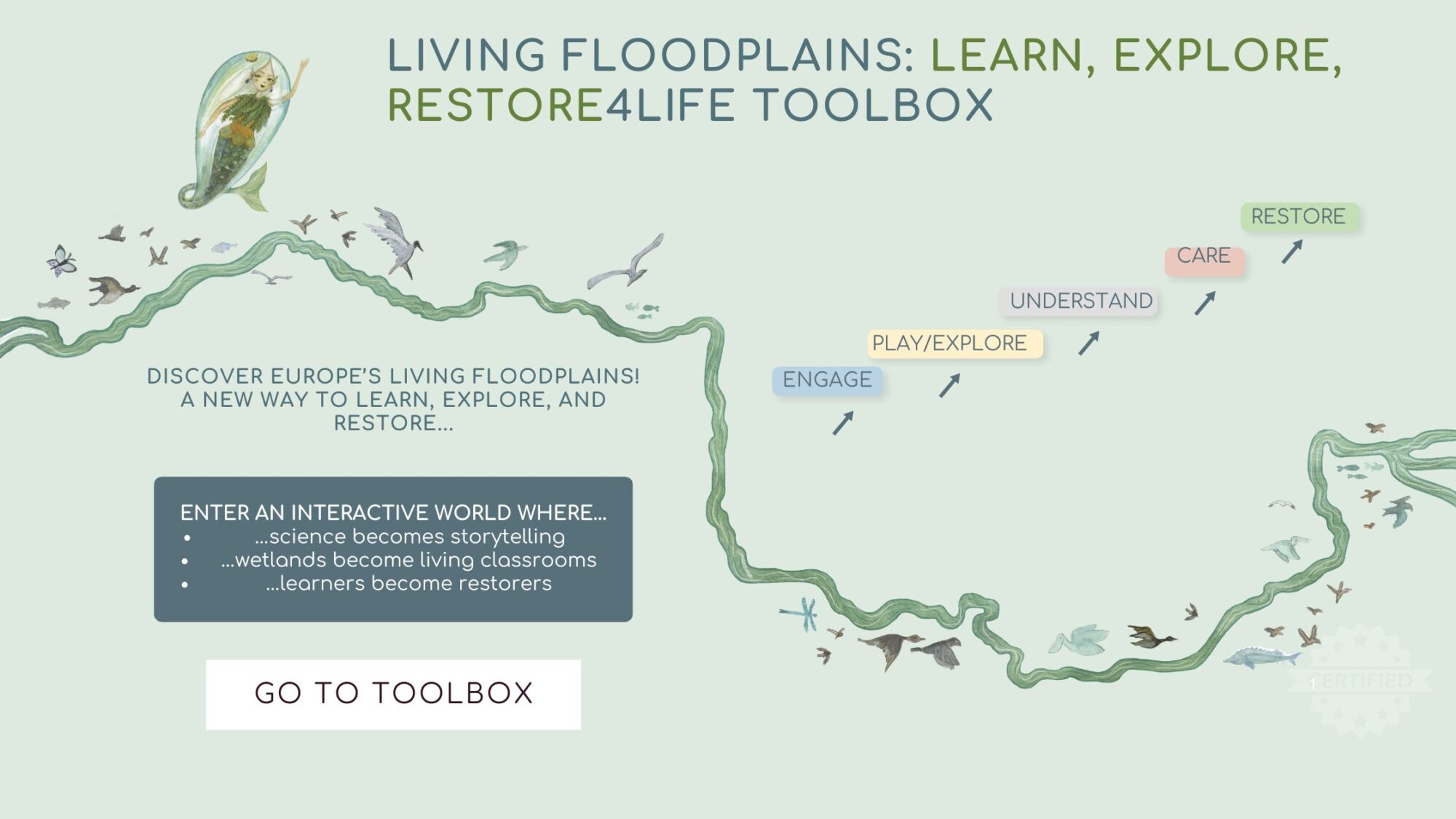
The fifth and final event of the current cycle of Associated Region meetings took place in the beautiful city of Lviv, Ukraine. The now familiar programme of field visits, business stakeholder meetings, and joint workshops occurred from 21 to 26 June, but due to the dire security situation caused by Russian aggression, the participation in Restore4Life was mostly online, with only Paul and Natalia Goriup attending in person. The team received a warm welcome from the hosts, Halyna Mykitchak (from the Lviv municipality ecology and natural resources department) and Bohdan Prots (CEO of the WWF Danube Carpathian Programme in Ukraine).
Last summer, Restore4Life selected five other wetland sites around Europe to work with our implementation site teams as Associated Regions, sharing knowledge and developing restoration tools. Four of these sites, in Portugal, Sweden, Armenia and Belgium, were the subjects of previous blogs. This concluding event featured the restoration of a wetland area at Bilohorscha, which is twinned with Lake Vlasina in Serbia.
The whole site covers 92 ha of fen that was formerly used to extract peat and then largely abandoned. Under threat from private development, which was opposed by local people, Lviv City Council declared the site as “Bilohorscha Peatland Landscape Reserve of Local Significance” in 2009. Even after a short visit, it was clear to us that the remaining wetland area is clearly of high biodiversity value and, by implementing appropriate management measures, has significant potential for maintaining locally and nationally important wetland plant and animal communities as well as serving as a substantial resource for outdoor recreation, education, water table stabilisation and carbon sink. These attributes are further enhanced by the context of the site lying within the municipal boundaries of a major city.
The Restore4Life contribution will cover work for 58.8 ha of the reserve aimed at raising the water level to prevent dehydration and encroachment by birch, pine and oak woodland – but encouraging more typical trees such as willow and alder. Wetter areas still support a wide variety of submerged, floating and emergent macrophytes that support insects, amphibians and birds, not to mention the recent arrival of a beaver family. Active fundraising efforts are being made to extend the rehabilitation and community engagement work to the remaining 33.2 ha of the reserve. This would enable the development of a comprehensive management plan for the entire landscape reserve, support for outdoor activities, expansion of rural green infrastructure zones, and increased awareness about rural wetlands and their benefits for nature, climate, and people.
The workshop convened in the impressive Lviv City Hall, drawing an audience of approximately 18 in-person attendees, complemented by 22 participants joining remotely. The session commenced with a powerful opening address from Lyubomyr Zubatch, Deputy Head of the City Council, who underscored the critical importance of safeguarding nature even as the city navigates the challenging realities of war. Facilitated skillfully by Halyna, the discussions were remarkably engaging, ensuring every participant had a valuable opportunity to contribute, making it perhaps one of the most dynamic workshops to date.
Following the successful workshop, the team seized a fantastic opportunity to ascend the 306 steps of the impressive watch tower, which offers commanding views from the City Hall. This allowed for a unique perspective before proceeding to visit several key stakeholder organizations and local businesses, engaging them in valuable discussions regarding the proposed Bilohorscha restoration plans.
Our profound gratitude goes out to Halyna, Bohdan, and their dedicated assistants, whose meticulous organization ensured our packed schedule ran seamlessly and contributed immensely to the success of the workshop!

